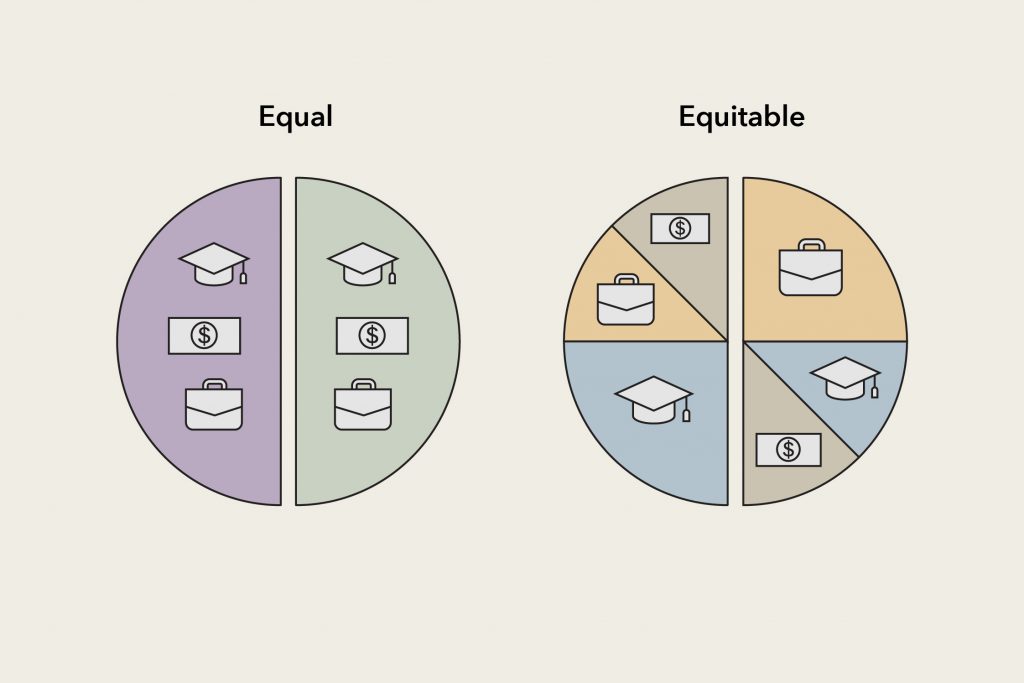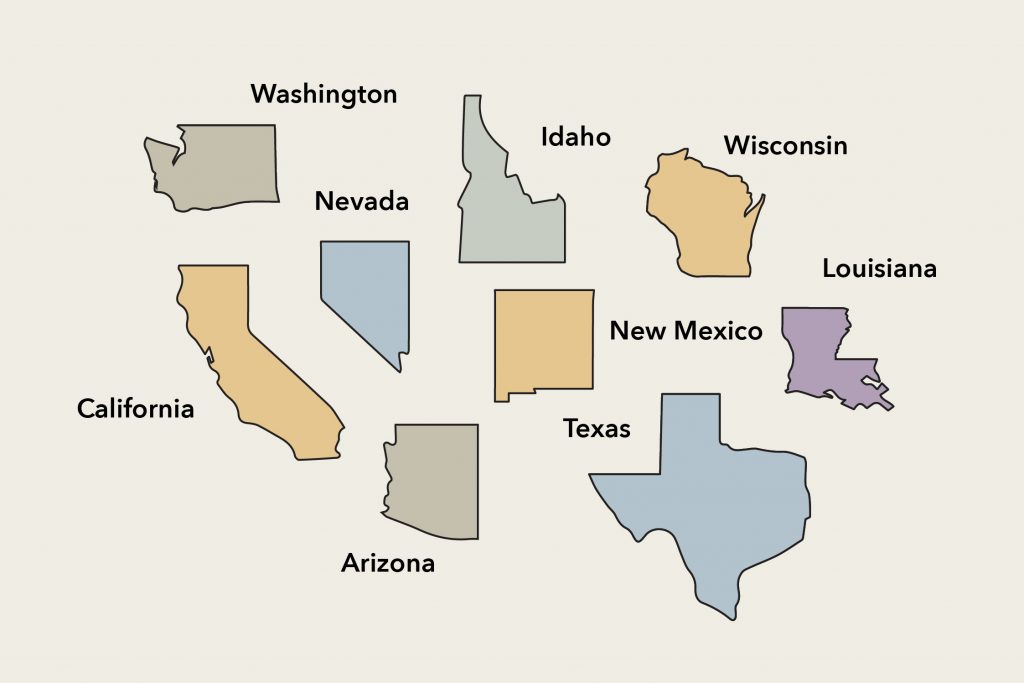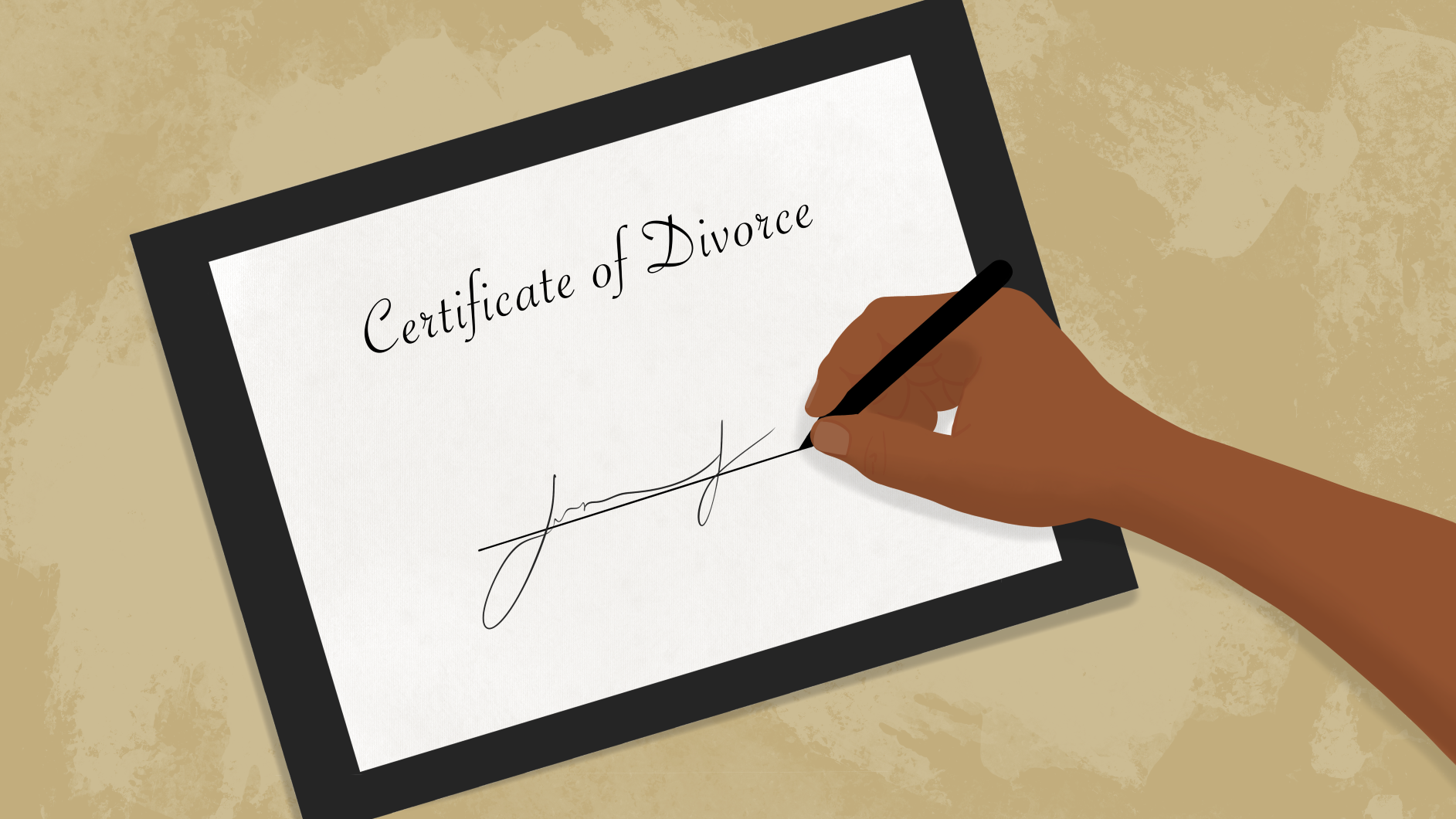Most people don’t enter marriage hoping to get divorced. But well-reported statistics show it happens anyway, and often. If you’re getting married, it’s prudent to understand what that means, in legal terms, and what a breakdown of your marriage could mean also, even if you’re not planning for that. The first thing to know about divorce is this:
If you and your spouse can’t decide on how to split everything you jointly own, including assets and children, the court will decide for you.
The second thing to know is that how the court decides will be determined, to a large extent, by where you live.
Know Your State’s Law
Depending on the state you reside in, the court will either split your assets equally or equitably. Anyone who pays attention to matters of social justice will know that these are dramatically different words.
- Equal is more mathematical, formulaic; it refers to splitting things evenly, down the middle.
- Equitable takes context into account. Its focus is fairness, not a formula.
Nine states observe the equal distribution of assets after a divorce; the rest observe equitable distribution. Let’s look deeper into what each of these terms means.

What is Equal Division?
This approach is also known as community property law. The theory of community property begins with the idea that marriage is an “economic community.”1 This means that for the duration of the marriage, anything earned or obtained by one spouse (except for gifts and inheritances) belongs to the community. This includes everything from furniture to vehicles to retirement accounts. According to the philosophy of equal division, assets and debts get split 50/50 in a divorce.
Nine states follow this line of thinking: Arizona, California, Idaho, Louisiana, Nevada, New Mexico, Texas, Washington, and Wisconsin. In some states, such as Alaska and Tennessee, the couple can opt into this kind of arrangement.2
While this sounds simple, it can get complicated. If it’s impossible to split an asset down the middle — for example, a house — then the asset can be sold and the proceeds divided equally.3 But how do you divide a jointly owned business down the middle? What if it doesn’t make sense to sell or liquidate the business? Anyone who’s been through a divorce knows the value of engaging a lawyer to handle the details.
Equal distribution applies only to the division of property; it doesn’t mean that judges don’t consider individual circumstances when they’re making decisions about alimony payments and child support payments. The 50/50 split also does not extend to separate property, which is the term for property acquired before the marriage, or gifts or inheritances received at any time.4

What is Equitable Division?
In an equitable division or equitable distribution, a judge determines who gets what. The judge will assign a percentage of the estate to each spouse after considering a number of factors, including education, employability, spending habits, needs, assets, age, and health.5 The idea is that each situation is different, and each requires a customized approach.
What if, for example, one spouse has a tertiary degree and the other does not? The first is more likely to land or maintain a higher-paying job after the divorce; a judge may weigh this reality in the decision-making process. What if the couple is paying down a large debt, and one spouse has been a stay-at-home parent for years? Would it be fair to split the debt down the middle?

What if one spouse gave up his or her career to raise the children — a decision that likely affected his or her potential to earn income? In this case, a judge might give the spouse who stayed home a greater share of the estate.4 A judge might also consider the length of a marriage. If one spouse has a lot of money, for example, and the couple has only been married for several months, a judge might hesitate to split things evenly. A judge might also consider each spouse’s health. If, for example, one spouse has a chronic condition that requires expensive medical care, that spouse might be likely to receive a greater share of the marital estate.
The judge might also consider the circumstances of the marriage, and take into account the financial impacts of behaviors such as abuse, gambling, drugs, or infidelity.6 If any marital property was used to support one or all of these habits, that information could influence the final division of assets.
Prenuptial Agreements
If you’re not married yet and you think your state’s divorce laws aren’t fair, you may want to discuss a prenuptial agreement with your potential spouse. This is, essentially, an agreement you enter into before you get married that outlines the terms of a potential divorce.
The prenuptial agreement is, by nature, a contentious document. Sometimes, a spouse coming into a marriage with more assets may want to protect themselves in case of a dissolution, and it can cause offense to the other spouse.
Marital Settlement Agreements
If you’re thinking about getting a divorce and you don’t think your state’s laws are fair, you have the option to negotiate the terms of your divorce with your spouse via a marital settlement agreement. If you can agree on how to split your assets, the court won’t have to decide for you. Spouses that come to an agreement might save tens of thousands of dollars by agreeing on terms.
Sources
- https://www.investopedia.com/terms/e/equitable-division.asp
- https://www.businessinsider.com/personal-finance/which-states-are-community-property-states-in-divorce
- https://www.nationalfamilysolutions.com/equitable-vs-equal/
- https://www.divorcenet.com/states/nationwide/property_division_by_state
- https://www.huffpost.com/entry/why-where-you-divorce-mat_b_3824647
- https://www.lawyers.com/legal-info/family-law/divorce/how-a-spouses-substance-abuse-may-change-your-divorce-strategy.html
